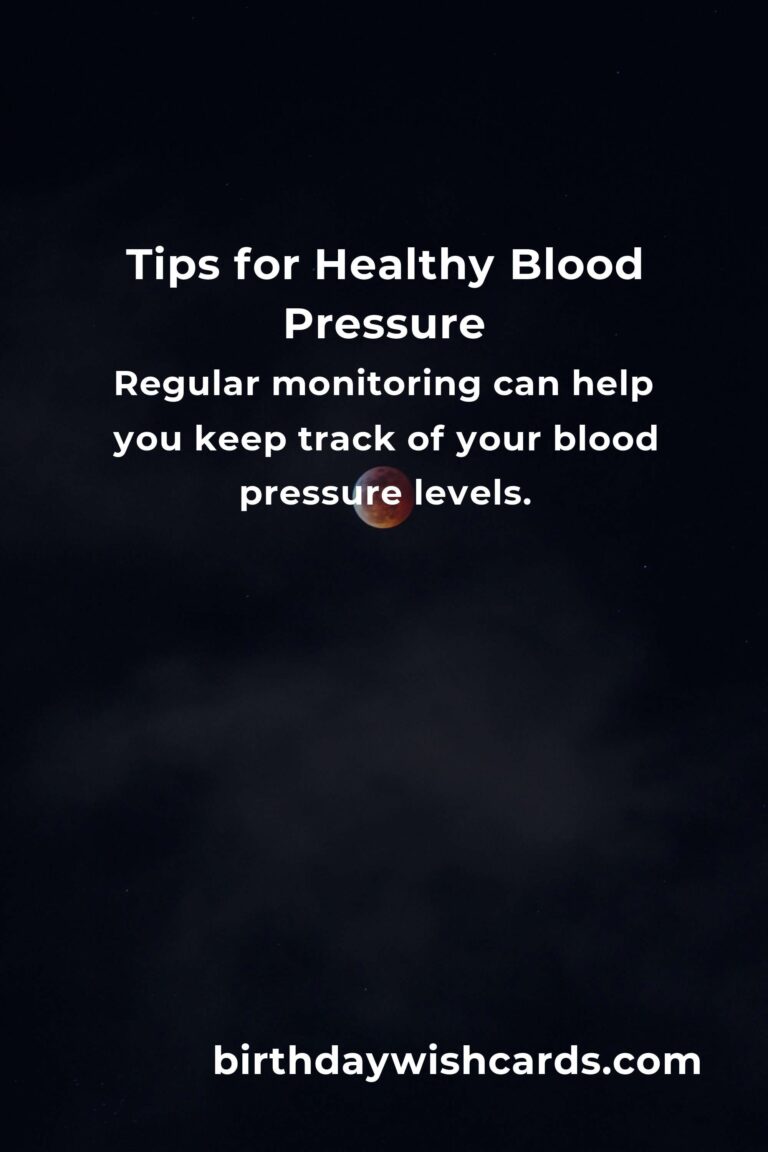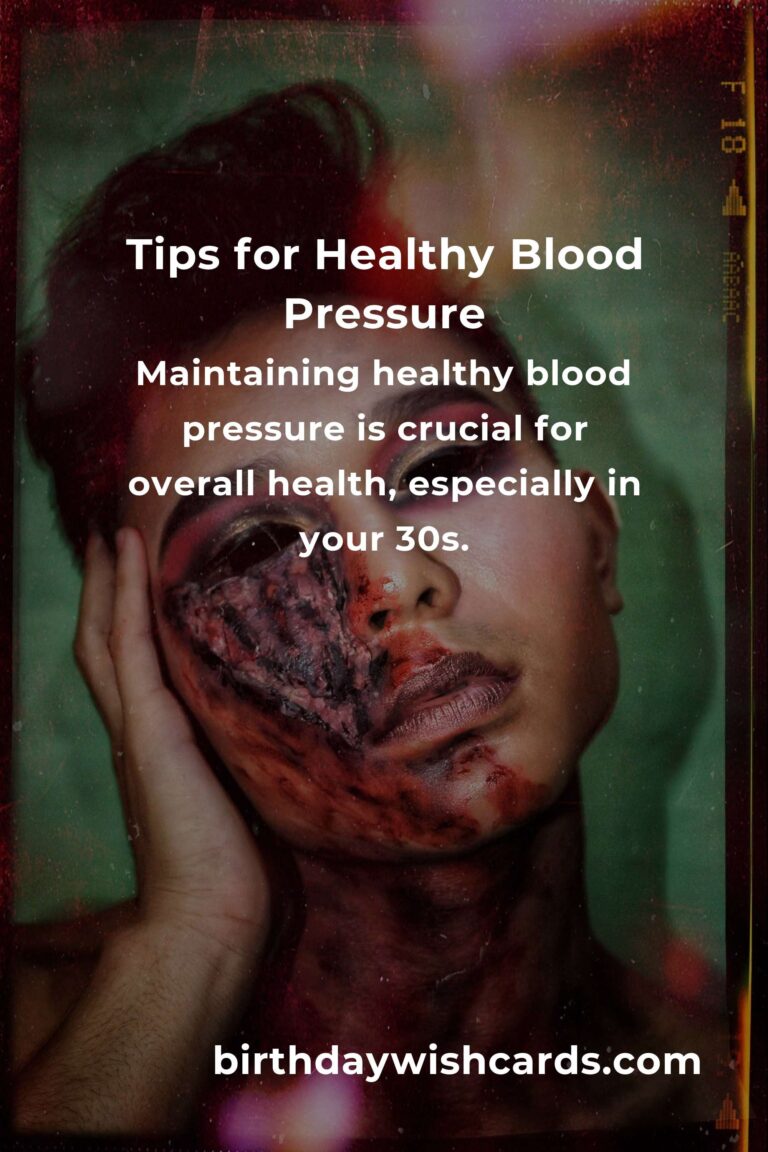
Maintaining healthy blood pressure is crucial for overall health, especially in your 30s when lifestyle habits can significantly impact your long-term well-being. High blood pressure, or hypertension, is often called the ‘silent killer’ because it typically has no symptoms but can lead to serious health problems, including heart disease and stroke.
Understanding Blood Pressure
Blood pressure is the force exerted by circulating blood on the walls of blood vessels. It’s measured in millimeters of mercury (mm Hg) and recorded with two numbers. The first number, systolic pressure, measures the pressure in your arteries when your heart beats. The second number, diastolic pressure, measures the pressure in your arteries when your heart rests between beats.
Key Tips for Better Blood Pressure Management
Here are 39 practical tips to help you maintain healthy blood pressure levels in your 30s:
1. Monitor Your Blood Pressure Regularly
Regular monitoring can help you keep track of your blood pressure levels and identify any potential issues early.
2. Maintain a Healthy Weight
Being overweight can increase your risk for high blood pressure. Losing even a small amount of weight can help reduce your blood pressure.
3. Exercise Regularly
Aim for at least 150 minutes of moderate aerobic activity or 75 minutes of vigorous activity each week.
4. Eat a Balanced Diet
Focus on a diet rich in fruits, vegetables, whole grains, and lean proteins. Limit saturated fats, cholesterol, and sodium.
5. Reduce Sodium Intake
Excess sodium can lead to high blood pressure. Aim to consume less than 2,300 mg of sodium per day.
6. Increase Potassium Intake
Potassium can help balance the amount of sodium in your cells. Foods rich in potassium include bananas, oranges, and potatoes.
7. Limit Alcohol Consumption
Drinking too much alcohol can raise your blood pressure. Stick to moderate drinking guidelines if you choose to consume alcohol.
8. Quit Smoking
Smoking increases your risk of developing high blood pressure and other cardiovascular diseases.
9. Manage Stress
Chronic stress can contribute to high blood pressure. Practice stress-reducing techniques such as meditation, yoga, or deep breathing exercises.
10. Get Enough Sleep
Aim for seven to eight hours of sleep per night. Poor sleep can negatively affect your blood pressure.
11. Drink Plenty of Water
Staying hydrated helps maintain healthy blood pressure levels.
12. Monitor Caffeine Intake
Caffeine can temporarily increase blood pressure, so be mindful of your consumption.
13. Regular Medical Checkups
Visit your healthcare provider regularly to monitor your blood pressure and overall health.
14. Know Your Family History
If high blood pressure runs in your family, you may need to be more vigilant about monitoring and managing it.
15. Limit Processed Foods
Processed foods often contain high levels of sodium and unhealthy fats that can elevate blood pressure.
16. Use Herbs and Spices
Instead of salt, use herbs and spices to flavor your food.
17. Practice Mindful Eating
Pay attention to what you eat, savoring each bite, which can help prevent overeating.
18. Reduce Sugar Intake
High sugar consumption is linked to obesity and increased blood pressure.
19. Consider DASH Diet
The Dietary Approaches to Stop Hypertension (DASH) diet is designed to help lower blood pressure.
20. Avoid Energy Drinks
Energy drinks can spike blood pressure due to their high caffeine and sugar content.
21. Take Prescribed Medications
If your doctor prescribes medication to control your blood pressure, take it as directed.
22. Limit Red Meat
Consume red meat in moderation as it’s often high in saturated fats.
23. Practice Deep Breathing
Deep breathing exercises can help reduce stress and lower blood pressure.
24. Engage in Hobbies
Hobbies can be a great way to relax and reduce stress levels.
25. Stay Socially Connected
Strong social ties can improve your mental health and help you manage stress better.
26. Limit Screen Time
Excessive screen time can contribute to a sedentary lifestyle and increased stress.
27. Practice Gratitude
Focusing on what you’re thankful for can improve your mood and reduce stress.
28. Avoid Illegal Drugs
Illegal drugs can have severe effects on your heart and blood pressure.
29. Be Wary of Over-the-Counter Medications
Some over-the-counter medications can increase blood pressure.
30. Eat Dark Chocolate
In moderation, dark chocolate can improve heart health.
31. Include Omega-3 Fatty Acids
Omega-3s found in fish oil can help lower blood pressure.
32. Avoid Trans Fats
Trans fats can increase the risk of heart disease and hypertension.
33. Use Less Oil in Cooking
Opt for healthier cooking methods like grilling, baking, or steaming.
34. Manage Chronic Conditions
Conditions like diabetes can increase your risk for high blood pressure, so manage them effectively.
35. Practice Positive Thinking
Maintaining a positive outlook can reduce stress and improve health.
36. Engage in Regular Physical Activity
Regular activity helps maintain a healthy weight and reduce stress.
37. Practice Portion Control
Eating smaller portions can help control weight and blood pressure.
38. Stay Informed
Keep up with the latest health recommendations for managing blood pressure.
39. Seek Support
If you’re struggling to manage your blood pressure, seek support from healthcare professionals.
By incorporating these tips into your lifestyle, you can work towards maintaining healthy blood pressure levels in your 30s and beyond. Remember, small changes can make a big difference in your health.
Maintaining healthy blood pressure is crucial for overall health, especially in your 30s.
High blood pressure is often called the ‘silent killer’ due to its lack of symptoms.
Regular monitoring can help you keep track of your blood pressure levels.
Losing even a small amount of weight can help reduce your blood pressure.
Focus on a diet rich in fruits, vegetables, whole grains, and lean proteins.
#BloodPressure #HealthyLiving #WellnessTips #HealthInYour30s

